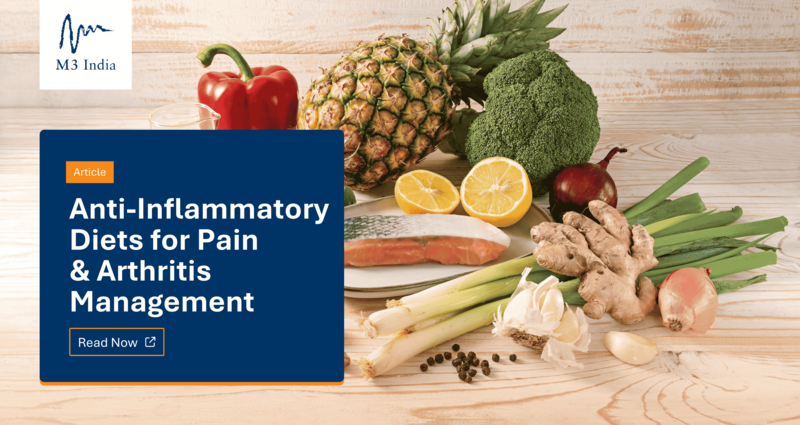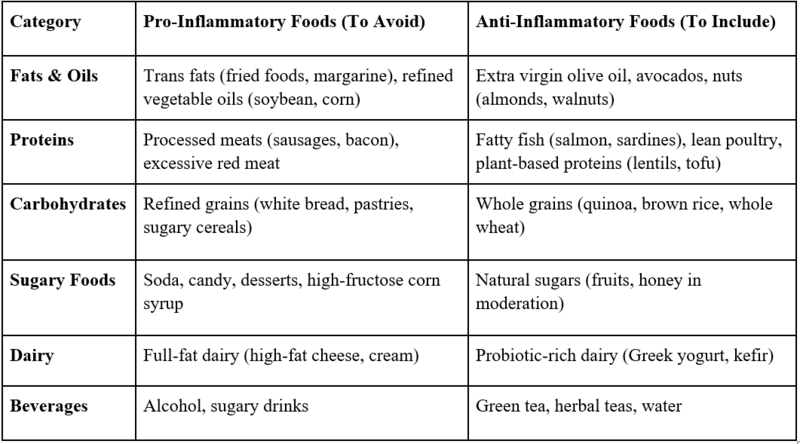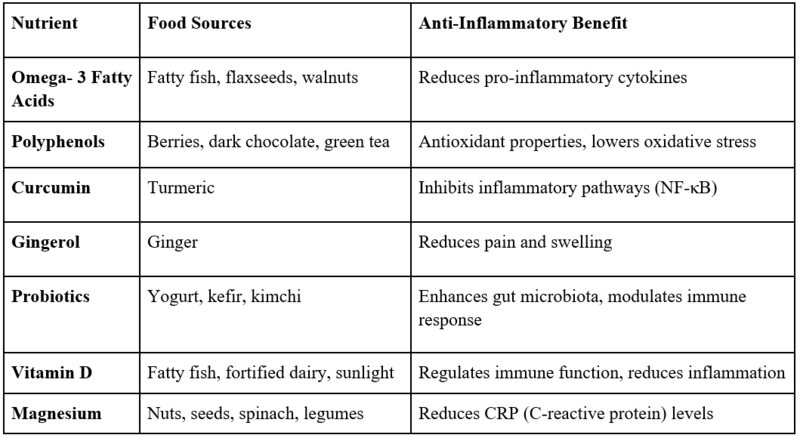Article: Anti-Inflammatory Diets for Pain and Arthritis Management
M3 India Newsdesk May 02, 2025
Emerging research highlights the role of diet in regulating inflammation. An anti-inflammatory diet rich in whole foods, healthy fats, antioxidants, and gut-supporting nutrients can help reduce pain, slow disease progression, and enhance quality of life.

Inflammation plays a significant role in chronic pain and arthritis, particularly in conditions like Osteoarthritis (OA) and Rheumatoid Arthritis (RA). It is the body's natural defense mechanism against injury and infections. However, the effect of inflammation depends on whether it is an acute, protective response or chronic inflammation that contributes to joint deterioration, pain, and stiffness.
Understanding Inflammation and Arthritis
Arthritis-related inflammation occurs due to immune system activation and oxidative stress, leading to tissue breakdown.
- Osteoarthritis (OA): Characterised by the wear-and-tear degeneration of cartilage, triggering low-grade chronic inflammation. Excess weight, metabolic disorders, diabetes, hormonal imbalance, sedentary lifestyle, and joint injury can lead to the degeneration of joints at some point.
- Rheumatoid Arthritis (RA): An autoimmune disorder where the immune system attacks joint linings, causing swelling, pain, and deformity.
Certain foods can have a direct impact on either increasing or reducing inflammation. Pro- inflammatory foods such as processed and refined foods can worsen the condition of joint pain, stiffness. On the other hand, anti-inflammatory foods like omega-3 fatty acids, probiotics, and antioxidants can increase the immune response of the body, reduce oxidative stress and relieve pains and swelling.
Pro-Inflammatory vs. Anti-Inflammatory Foods

Key Principles of an Anti-Inflammatory Diet
A successful anti-inflammatory diet follows three core principles:
- Whole, Nutrient-Dense Foods: Prioritising unprocessed, natural foods for essential nutrients.
- Balanced Macronutrients: Including healthy fats, lean proteins, and complex carbs to support metabolic health.
- Hydration & Gut Health: Drinking plenty of water and including fermented foods and fiber to support gut microbiota.
Foods That Help Reduce Inflammation
Certain foods contain bioactive compounds that help reduce inflammation, support immune function, and protect against joint damage. Table below depicts the nutrients and their anti-inflammatory benefit.

Scientific Evidence Supporting Anti-Inflammatory Diets
Several studies validate the role of diet in reducing inflammation and pain:
- Mediterranean Diet & Arthritis: A study in The American Journal of Clinical Nutrition found that patients with RA on a Mediterranean diet (rich in olive oil, fish, and vegetables) experienced a reduction in joint pain and stiffness.
- Omega-3 Fatty Acids & Inflammation: Research in Arthritis & Rheumatology showed that omega-3 supplementation led to reduced disease activity and NSAID dependency in RA patients.
- Curcumin for Arthritis Relief: A meta-analysis in Journal of Medicinal Food found that 500–1000 mg/day of curcumin significantly reduced pain and inflammatory markers in arthritis patients.
Practical Tips for Implementing an Anti-Inflammatory Diet
- Plan Meals in Advance: Include whole foods and anti-inflammatory ingredients.
- Shop Smart: Stick to the grocery store perimeter for fresh, unprocessed foods.
- Easy Swaps for Inflammatory Foods:
- Swap white rice → quinoa or brown rice
- Replace vegetable oils → extra virgin olive oil
- Choose lean fish/poultry → red meat (in moderation)
Case Studies
Case Study 1: Rheumatoid Arthritis Management with an Anti-Inflammatory Diet
Patient Profile:
- Age: 52 years old
- Gender: Female
Diagnosis: Rheumatoid Arthritis
Present complaints: Morning stiffness and joint swelling.
Intervention: She followed a Mediterranean diet, increased omega-3 intake, eliminated processed foods and refined sugar and incorporated turmeric supplements.
Outcome: After 3 months, she reported a reduction in pain severity and improved joint mobility, with a decreased need for NSAIDs.
Case Study 2: Osteoarthritis Symptom Reduction through Dietary Changes
Patient Profile:
- Age: 60 years old
- Gender: male
Diagnosis: Knee Osteoarthritis
Present complaints: Struggling with obesity and inflammation.
Intervention: Shifted to a plant-based, whole-food diet, increased intake of olive oil, legumes, and fermented foods, while reducing refined carbs and red meat.
Outcome: Over 6 months, he lost 10 kg, experienced a 40% reduction in knee pain, and showed lower CRP levels (by 25%).
Take-home Message
An anti-inflammatory diet, combined with targeted lifestyle modifications, offers a science-backed, holistic approach to managing arthritis and chronic pain. By prioritising nutrient-dense, anti-inflammatory foods, such as omega-3 fatty acids, antioxidants, healthy fats, and probiotics, while reducing processed and pro-inflammatory foods, patients may experience reduced joint pain, enhanced mobility, and overall improved well-being.
Additionally, physiotherapy, regular exercise, and strength training play a crucial role in maintaining joint function, reducing stiffness, and preventing further degeneration. Given the strong evidence supporting the impact of nutrition on inflammation, healthcare professionals should integrate dietary interventions alongside conventional pharmacological and physical therapies to optimise arthritis management and patient outcomes.
Disclaimer: The views and opinions expressed in this article are those of the author and do not necessarily reflect the official policy or position of M3 India.
The author of this article: Ms Rutambhara Nhawkar is a Clinical Dietician, M. Sc. (Clinical Nutrition & Dietetics), Certified Diabetes Educator and a medical writer from Pune.
-
Exclusive Write-ups & Webinars by KOLs
-
Daily Quiz by specialty
-
Paid Market Research Surveys
-
Case discussions, News & Journals' summaries